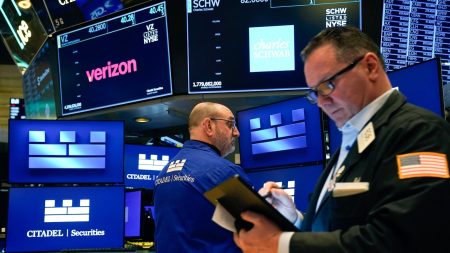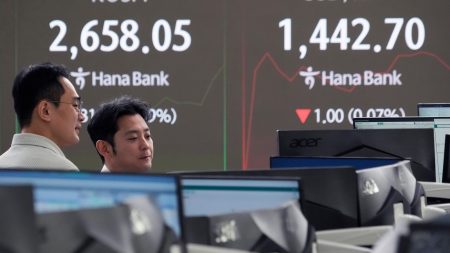Introduction: Argentina’s "Cryptogate" Scandal and the Rise of Meme Coins
In the vibrant city of Buenos Aires, Argentina, a political storm is brewing around President Javier Milei, who finds himself at the center of a corruption investigation linked to the promotion of a meme coin called $LIBRA. This scandal, locally dubbed "Cryptogate," has ignited debates about the volatile world of cryptocurrency, the ethics of political endorsements, and the risks associated with these highly speculative digital assets. At its core, the controversy surrounds Milei’s enthusiastic promotion of $LIBRA, which surged in value shortly after his endorsement but then collapsed, leaving many investors with significant losses. The fallout has been swift and severe, with criminal complaints filed, calls for Milei’s impeachment, and a federal investigation underway. This situation is not just a local issue; it taps into broader questions about the role of cryptocurrency in modern finance, the power of influencers, and the dangers of unregulated markets.
What’s a Meme Coin? Understanding the Wild West of Cryptocurrency
To grasp the significance of "Cryptogate," it’s essential to understand what meme coins are and why they have become a lightning rod for controversy. Meme coins are a type of cryptocurrency inspired by internet memes, viral moments, or celebrity culture. They often have playful names, like Dogecoin or Fartcoin, and are typically created to capitalize on a trend rather than solve a real problem. While some see them as harmless fun or even a gateway to the world of cryptocurrency, others warn that they are essentially digital Ponzi schemes designed to enrich insiders at the expense of everyday investors. Critics argue that meme coins lack the technological innovation or real-world utility of more established cryptocurrencies like Bitcoin or Ethereum, making them inherently risky. Yet, supporters counter that these coins shouldn’t be dismissed outright, as they might represent the early stages of a broader revolution in how financial transactions occur online. As Coinbase CEO Brian Armstrong has noted, "New technologies often look like toys but evolve into something much more powerful over time." Whether meme coins are toys, investments, or something in between, their rise has undeniably captured the attention of the public and policymakers alike.
The $LIBRA Scandal: A Tale of Influence, Insight, and Collapse
The $LIBRA scandal began on a Friday in October when President Milei took to the social media platform X to promote the newly launched meme coin. In his post, he framed his endorsement as a way to "encourage economic growth by funding small businesses and startups," a narrative that resonated with his libertarian base and their enthusiasm for free-market innovation. The coin’s price skyrocketed almost immediately, pushing its market value beyond $4 billion. However, the celebration was short-lived. Just hours after the launch, early holders of the coin began selling their stakes, causing the price to plummet and wiping out billions of dollars in value. The rapid rise and fall of $LIBRA bore all the hallmarks of a "rug pull," a practice where insiders artificially inflate the value of a coin before cashing out, leaving later investors with significant losses. Milei quickly distanced himself from the project, deleting his original post and denying any wrongdoing. By Monday, the situation had spiraled, with dozens of criminal complaints filed and a judge appointed to investigate allegations of fraud. The federal prosecutor soon followed, opening a formal probe into Milei and five others for possible crimes including bribery, fraud, and abuse of authority.
Milei has been defiant in the face of these accusations, insisting that he acted in good faith and even requesting an investigation by the Justice Ministry’s Anti-Corruption Office to clear his name. However, the damage to his reputation has already been done. "Cryptogate" represents the first major scandal of his presidency, and analysts warn that it could undermine public trust in his administration at a critical juncture. Milei, a self-proclaimed iconoclast who rose to power on promises to tame Argentina’s rampant inflation and root out political corruption, now finds himself facing accusations of the very same corruption he vowed to eliminate. The scandal also raises questions about how this will impact Argentina’s efforts to attract foreign investment and negotiate a crucial loan with the International Monetary Fund (IMF). As Milei meets with tech leaders like Elon Musk in Washington, D.C., the world is watching to see how he will navigate this crisis and whether his vision for economic overhaul can survive the scrutiny.
The Cast of Characters: Influencers, Developers, and the Meme Coin Ecosystem
The $LIBRA scandal has brought together a colorful cast of characters, each playing a role in the unfolding drama. One of the central figures is Hayden Davis, a 28-year-old American crypto developer who claims to have served as an adviser to Milei and helped launch $LIBRA. Davis has been open about the risks of meme coins, describing them as "an insiders’ game" and "an unregulated casino." In an interview with crypto journalist Stephen Findeisen, he admitted that the $LIBRA project was not a rug pull but an experiment aimed at demonstrating the potential of digital currency—a narrative that aligns with Milei’s vision for Argentina as a hub for innovation. Davis also revealed that he was involved in the launch of a meme coin tied to Melania Trump, which followed a similar trajectory of rapid ascent and collapse. The first lady’s office has declined to comment on the matter.
Another key player is Dave Portnoy, the founder of Barstool Sports and a vocal advocate for gambling and high-risk investments. Portnoy claimed that Davis approached him before the launch of $LIBRA, offering him a chance to promote the coin and even suggesting a potential interview with Milei—a privilege Portnoy had previously enjoyed with former President Donald Trump. While Portnoy said he didn’t buy $LIBRA until after Milei’s endorsement, he admitted to losing money when the coin’s price crashed. In a surprising twist, Davis reportedly reimbursed Portnoy for his losses, a move that some have interpreted as an attempt to silence criticism or avoid further scrutiny.
Rounding out the cast is "Meow," the pseudonymous co-founder of a crypto firm involved in launching $LIBRA. Meow has denied any wrongdoing on the part of the company or its affiliates, expressing confidence that no insider trading or financial misconduct occurred. Nevertheless, the firm has hired a law firm to conduct an independent investigation, and one of its leaders has resigned due to "a lack of judgement." These developments underscore the complexity and opacity of the meme coin ecosystem, where anonymity and pseudonymity are common, and the lines between innovation and exploitation often blur.
The Fallout: Political Repercussions and the Future of Meme Coins
The fallout from "Cryptogate" has been immediate and far-reaching. By Monday, just days after the launch of $LIBRA, dozens of criminal complaints had been filed, and a judge had been appointed to oversee the investigation. The federal prosecutor soon followed, formally opening a probe into Milei’s involvement and the roles of several key figures in the scandal. The main opposition party in Argentina has seized on the crisis, calling for Milei’s impeachment and accusing him of abusing his power for personal gain. These developments have not only tarnished Milei’s reputation but also raised questions about the stability of his administration and its ability to govern effectively.
The scandal has also sparked a broader conversation about the risks and responsibilities associated with meme coins. While they may seem like harmless fun to some, the collapse of $LIBRA serves as a cautionary tale for investors and creators alike. The meme coins tied to Donald and Melania Trump, for example, have seen their prices plummet since their launch, drawing criticism from Democrats and crypto enthusiasts who accuse the former president and his family of cashing in on their celebrity status. Similar controversies have erupted over meme coins tied to other public figures, such as Caitlyn Jenner, who is currently facing a class action lawsuit from investors who claim they were duped into losing money on her $JENNER coin. Jenner, like Melania Trump, has denied any wrongdoing, but the reputational damage has already been done.
The impoverished Central African Republic has also waded into the meme coin market, issuing its own cryptocurrency earlier this month. The coin’s price briefly spiked before collapsing, leaving many to wonder if these projects are more about generating buzz than delivering value. As governments, celebrities, and influencers continue to experiment with meme coins, the question remains: Are these coins a viable path to financial innovation, or are they just another way for the wealthy and powerful to exploit the public?
Conclusion: The Lessons of "Cryptogate" and the Future of Cryptocurrency
The "Cryptogate" scandal offers several important lessons for investors, policymakers, and anyone curious about the wild and unpredictable world of cryptocurrency. First and foremost, it highlights the risks of unregulated markets and the dangers of getting swept up in the hype surrounding meme coins. While these coins can be entertaining and even profitable for some, they are fundamentally different from traditional investments, and their value is often driven by speculation rather than substance. As Hayden Davis has acknowledged, the meme coin market is inherently rigged, with insiders holding the power to make or break a coin’s value. Investors would do well to approach these assets with caution, doing their due diligence and understanding that the promise of easy profits often comes with significant risks.
Second, the scandal underscores the need for greater transparency and accountability in the cryptocurrency space. While the decentralized nature of blockchain technology is part of its appeal, it also creates opportunities for abuse and exploitation. Regulators, lawmakers, and industry leaders must work together to establish clear guidelines and safeguards that protect investors while still allowing for innovation and growth. This is especially important as more governments and public figures wade into the meme coin market, bringing with them the weight of their influence and the potential for abuse.
Finally, "Cryptogate" serves as a reminder of the importance of ethical leadership and the responsibility that comes with public office. President Milei’s endorsement of $LIBRA, even if well-intentioned, has raised serious questions about his judgement and his commitment to fighting corruption. As Argentina navigates its own economic challenges, the last thing it needs is a scandal that erodes trust in its leaders and distracts from the pressing issues at hand. Milei’s ability to weather this storm and restore confidence in his administration will depend on his willingness to be transparent, accountable, and true to the principles he campaigned on.
In the end, the rise and fall of $LIBRA is more than just a story about a meme coin or a political scandal—it’s a microcosm of the broader debate over the role of cryptocurrency in modern society. As the technology continues to evolve and mature, it’s crucial that we learn from the mistakes of the past and work towards a future where innovation and integrity go hand in hand.















